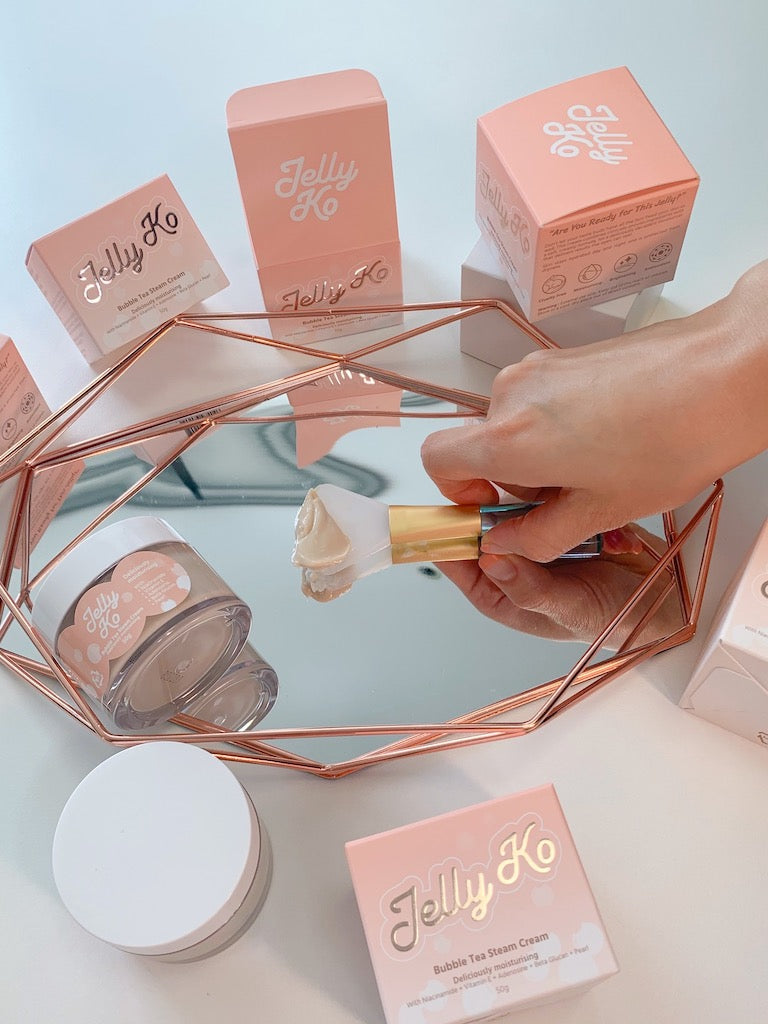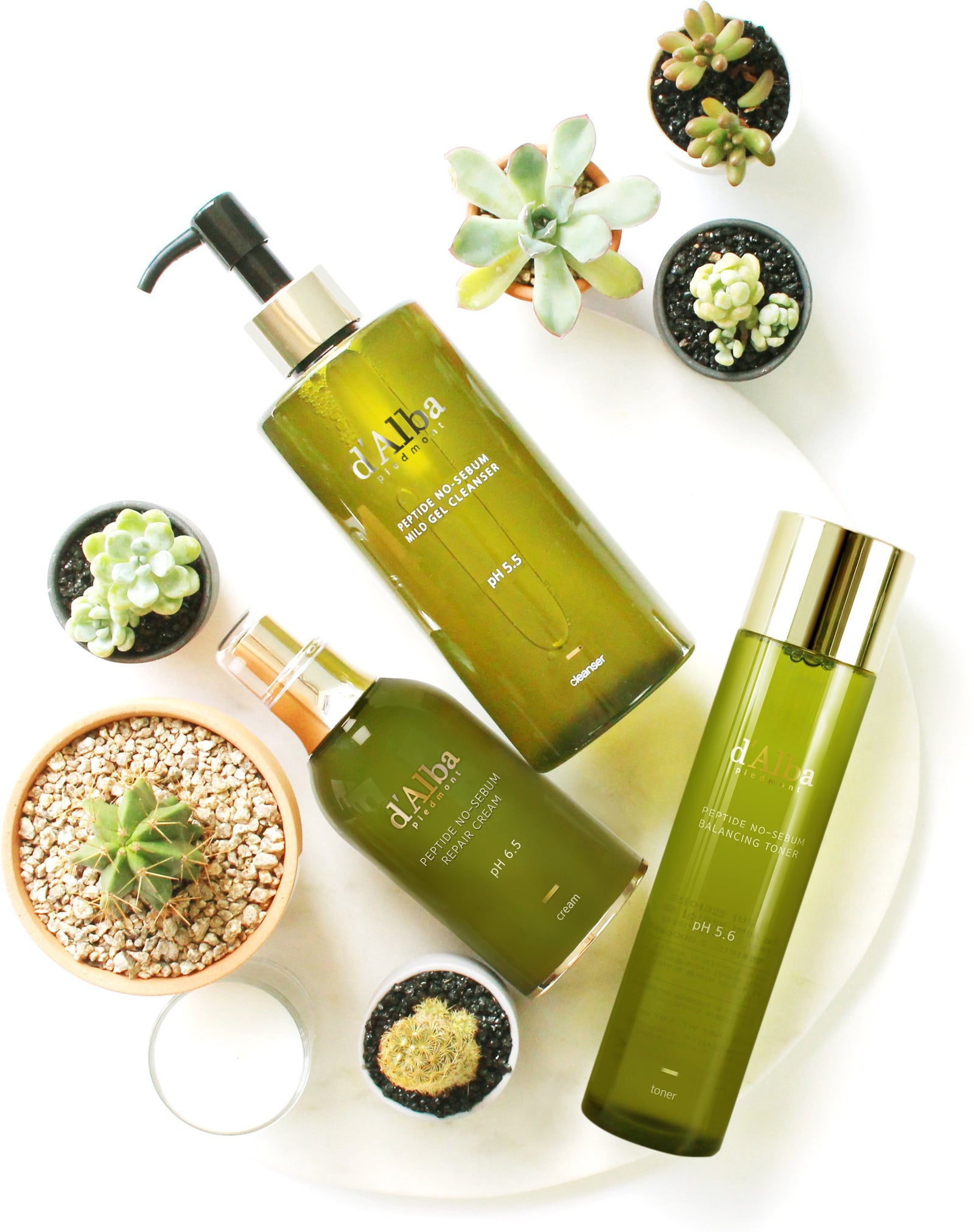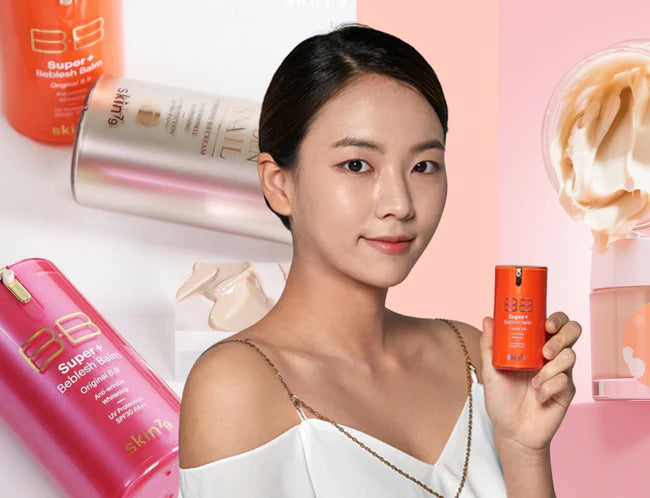The Korean Beauty Show 🎧 Your K-Beauty audio library starts here →
Menu
Is the Growth of the K-Beauty Industry Problematic?
August 29, 2023

Is the Growth of the K-Beauty Industry Problematic?
On episode 215 of the Korean Beauty Show podcast, Lauren explores a new report into the growth of the Korean beauty industry in the past decade and whether it is problematic. Plus, skin minimalism is booming in Korea and a listener wants to know more about the best Australian sunscreens and how they compare to Korean ones.
CONNECT WITH ME
My Instagram: www.instagram.com/lauren.kbeauty
Shop Kbeauty: www.stylestory.com.au
Style Story’s IG: www.instagram.com/stylestory_kbeauty
TikTok: https://www.tiktok.com/@stylestory_kbeauty
Jelly Ko’s IG: www.instagram.com/jellyko_official
Facebook: www.facebook.com/stylestory.au
Website: www.thekoreanbeautyshow.com
Sign Up to Our Mailing List to Join Tester's Club: https://stylestory.com.au/pages/free-gift-signup
Pinterest: https://www.pinterest.com.au/stylestoryau
K-BEAUTY NEWS
Skinimalism Trend Continues in Korea
Recently, the domestic Korean beauty has seen a rise in products tapping into the "skinimalism" trend. Combining "skincare" and "minimalism" the trend is to use less than 5 products for skincare and makeup.
Apparently consumers are fed up with 10 step skincare routines in a post-pandemic world.
Current keyword trends include "multi functional" and "all in one". The products offer maximum skincare effects with the minimal amount of products.
Products to Try: Jelly Ko Bubble Tea Steam Cream (oil, serum and moisturiser in one), Subi Holo Dream Face Mask (primer and exfoliator in one)

Is the Growth of the K-Beauty Industry Problematic?
The Skin-Based Technology Development Project Group recently published a trend report analysing the current status and production performance of domestic Korean cosmetics companies. They based their report on press releases covering production and export performance as well as individual statistics released by the Ministry of Food and Drug Safety.
The results show that in the past decade, the number of "responsible sellers" (a required designation for companies selling Korean beauty products in Korea) has increased almost 25%, reaching 28,000. This represents a 7.2 times increase.
The report claims that the reason for the increase is the government's development of policies centered on start-up support.
However, only 3.6 out of 10 "responsible sellers" have an actual production performance, with the remainder having no production performance.
They believe this could be a negative signal that the government may be supporting smaller businesses that don't have an ability to impact industrial development when that money might be better spent supporting larger businesses or those with an actual production performance.

Question of the Week: What Are the Best Australian sunscreens?
NEW KOREAN BEAUTY REVIEWS
Subi Bare Skin Balm
- "One of the best cleaners I have ever used ,love it"
5 Step Kbeauty Set
- Nice Products
- So far I’m very happy with the products ,my skin feels clean and fresh. I love the Subi Oil Cleanse it’s amazing how gentle it is and how well it works. The powder cleanser is lovely but can get gritty if you don’t water it down ,but that’s because I have very dry eyes. The Toner is very gentle and the Moisturiser is nourishing. All in all very happy with the products."

Innisfree Green Tea Amino Acid Foam Cleanser
- Love the product
- "It is amazing how little you need for the whole face"
Tosowoong Spot Whitening Vita Clinic Cream
- Absolute gamechanger
- "This is the first product I have tried from Tosowoong and it is so amazing, Ive since bought several more to try. Im suffering from old acne scars, post pregnancy melasma and general dullness caused by having two kids under two and a total lack of sleep. I noticed a difference in my pigmentation by day 2 and by day 5 it was significant enough that my husband actually noticed and commented. When Im home all day, I apply it a few times throughout the day in thin layers and my skin absolutely drinks it up. Totally amazing, will never stop using now!"
NEW BEAUTY PRODUCTS ON STYLE STORY
- Hada Labo Gokujyun Premium Milk (140ml)
- This has a rich, essence-like texture that gently wraps skin in moisture.
- It contains 5 types of Hyaluronic Acid
- Suitable for very dry/dry skin
- 1% of the profits from the sale of this product will go towards our pledge to 1% For the Planet. Share your love of beauty with the planet every time you shop at STYLE STORY.

- Manyo Factory Pure Cleansing Oil (400ml)
- This is a gentle yet powerful cleansing oil that melts away blackheads and whiteheads without clogging pores.
- It contains Argan Kernel Oil, Rice Bran Oil, Jojoba Seed Oil, Olive Fruit Oil, Camellia Oil and Evening Primrose Oil
Recommendation of the Week - Bondi Sands Fragrance Free Sunscreen Lotion
- A nice body sunscreen but would be be even better if it was bigger.
- It rubs in nicely and after a week wearing it around I’m not noticing any darkening of existing sun spots or pigmentation
STYLE STORY - Your Go To For Kbeauty Since 2014
Shop Now
“In the past decade, the number of “responsible sellers” has increased almost 25%, reaching 28,000. This represents a 7.2 times increase.”
Lauren Lee, Host of the Korean Beauty Show podcast




Leave a comment
Comments will be approved before showing up.